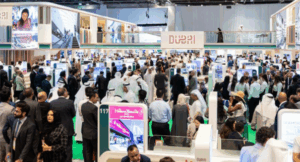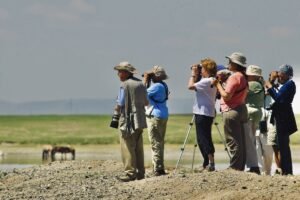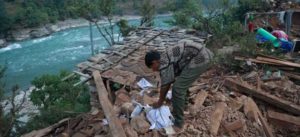World economy and Nepal
By Madan Kumar Dahal
The world population leveled at 7.5 billion and the world GDP surpassed US$ 65 trillion by the end of 2011. In 2020, the world population will grow to 8 billion with the global economy approaching US$80 trillion, and the wireless Internet 4.0 is now connecting almost half of humanity. In September 2011, IMF warned that the financial crisis in developed economies had entered a “dangerous new phase”, saying a “fall back into recession for Western economies would have serious knock-on effects for the rest of the world”. The IMF cautioned that a global recession, more ruthless and dangerous than the previous one, cannot be ruled out in 2012, as the effects of the euro-zone debt crisis are spreading to more countries.
The aftermath of next recession would slow-down global stock-markets; labor-intensive employment would drastically be curtailed; quantum of ODA would substantially fall; price for education, health, transport and public utilities, including food, would be exorbitant; liberalization would help accelerate economic growth but with growing inequality and limited socialization of profit; robot technology will get momentum to dominate human behavior; dot.com society is likely to emerge as a powerful instrument to further expansion of global connectivity; multi-nationals would play pro-active role to be associated with rise and fall of the nations; effects of corporate governance would be neutral on improving performance of financial institutions; charity will evidently be eclipsed with increasing greed for wealth and power; value, ethics and morality will get little prominence in society; individuals and organizations will actively indulge in maximizing wealth through ugly and illicit competition; ideology will gradually be replaced by market; insecurity with increasing terrorism would threaten global peace and destroy human aspiration to live in dignity; and traditional democracy will fall with alarmingly increasing extent of lawlessness and impunity. It is, therefore, imperative to devise a pragmatic but ambulance approach to neutralize possible negative effects of global economic meltdown likely to confront developing economies like Nepal in future.
Nepal’s economic development is a challenging proposition akin to traveling on the Silk Road and, therefore, the economy urgently requires ICU treatment ensuring a take-off from extremely low income to the level of affluence at par with middle income economies.
The economy is confined to sluggish growth rate as low as 3.5 per cent with inflation hovering around 9.6 per cent during FY 2010/11. The WTO Report 2011 envisaged the size of Nepal’s GDP leveled at a diminutive Rs. 1,346 billion; GNI per capita remained conspicuously low at US$ 642; level of consumption surpassed by 94 per cent of GDP; Tax Effort Ratio (TER) marked 15. 3 per cent of GDP; and trade deficit alarmingly swelled upto Rs. 327 billion during the period.
The share of exports to India exceeded 65 per cent; contribution of remittances increased to 23 per cent of GDP; share of foreign exchange earnings from the tourism sector declined to 2.4 per cent of GDP in FY 2010/11; quantum of cumulative FDI stagnated at Rs. 58 billion as of mid-March 2010; and 74 per cent of the population still derive their livelihood directly from agriculture.
The economy is likely to capsize with rapidly deteriorating political situation resulting in the collapse of existing democratic institutions and their leadership. In addition, the latest report of International Anti-corruption Watch Dog, Transparency International 2011, and Failed State Index 2011, the report of the Auditor General of Nepal, and transfer payments to state-owned enterprises running into huge losses provide adequate evidence that Nepal is the most corrupt country in South Asia.
The current economic situation is more vulnerable than what is expected to create adverse impact on the economy by global economic meltdown in the future. It is most unfortunate that Nepalese governments in the past and to-day are terribly engaged in managing the crisis with little emphasis and priority to resolving the existing economic crisis.
Investment is not a constraint to economic growth, which is estimated to be as high as 30 per cent of GDP. Growing inefficiency and decelerating competitiveness, mounting corruption, and extremely poor governance are three notorious factors detrimental to economic progress in Nepal.
Nepal has strong potential and viable areas for economic development such as agriculture, hydropower, tourism, biodiversity, remittances through foreign employment, and traditional exports. The private sector investment must be stepped-up in priority areas including mobilization of FDI on a greater quantum. There is need for expediting effective implementation of ‘Special Economic Zone (SEZ)’, combating inflation with increasing productivity of both agriculture and non-agriculture sector, moving towards ‘Zero-Tariff Regime’ with India, China, Euro-zone, and other development partners would be highly instrumental in accelerating economic development of Nepal. ( Prof. Dahal is Chairman, Mega Bank Nepal Ltd.)














